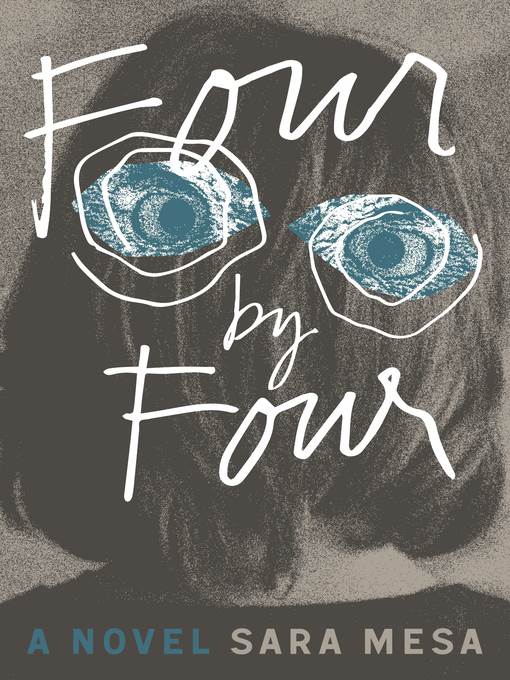
Four by Four
کتاب های مرتبط
- اطلاعات
- نقد و بررسی
- دیدگاه کاربران
نقد و بررسی

March 1, 2020
The grim truth about a boarding school gradually unfolds through shifting perspectives and various found documents. Spanish writer Mesa writes of power struggles at Wybrany College, an elite boarding school where the wealthy send their children to protect them from the violence of the city. Part 1 opens with an escape attempt by several of the schoolgirls. Their fear of being caught belies the school's ambiance of freedom. In subsequent chapters, we learn of the relationships among the headmaster, Se�or J., his underlings, and his students. Relationships between adults at the school involve private humiliation and subjugation. The relationships among the children mirror those of the adults. Se�or J. takes on a prot�g�, a boy with disabilities: "The Headmaster is drawn to his submission, that passive acceptance of his fate." The student, Ignacio, is transformed from passivity to confidence through his relationship with Se�or J. and then begins to subjugate his peers. At the school, everyone seems to "barter with love, with desire." Relationships are transactional. There are hierarchies: between teachers and students and between the regular students and the "Specials," or students on scholarship. Several students and a teacher go missing. The teacher's replacement, who's the narrator of Part 2, is a wannabe writer posing as a licensed educator. He senses from early on that something is hidden within the school--a set of rules, perhaps, or something more sinister. "There's an unhealthy stillness," he writes, "something crouching behind the silence." As the substitute gets closer to the truth he learns what danger lies in revealing the school's secrets. A coda, in the form of fiction written by the teacher whom the substitute replaces, shines a light on the school's opaque systems and secrets. A meticulously constructed and chilling study of desire and influence.
COPYRIGHT(2020) Kirkus Reviews, ALL RIGHTS RESERVED.

March 23, 2020
Mesa’s uneven gothic English-language debut follows the students and administrators of an elite Spanish school through a series of escalating cruelties. At Wybrany College, 13-year-old Ignacio is frequently bullied. After Héctor, a new kid, is taunted with homophobic slurs, the two boys become allies and the tides shift for Ignacio. Meanwhile, 15-year-old Celia finds a protector in the Advisor, who offers to allow Celia to visit her mother in the impoverished and drug-ridden neighborhood Celia left behind, an apparently innocent gesture that belies his devious intentions. As the second part of the novel reveals, Wybrany’s administrators provide anything but safe haven. Mesa shifts from Celia and Héctor to journal entries from Isidro Bedragare, a substitute teacher and failed writer who conned his way into the job and learns about the administrators’ sinister behavior and a series of missing students and faculty. Isidro documents the horrors he witnesses at Wybrany in his journal, the least of which being his discovery of a decapitated cat. While Mesa’s ambitious two-part structure falters with uneven pacing, sparse details, and a jarring switch to Isidro’s point of view, Isidro eventually discovers the school’s secrets, and Mesa briefly shines. In a recent glut of neo-gothic tales, this one feels extraneous. Agent: Indent Literary Agency.

May 15, 2020
Located in the now defunct city of Vado is Wybrany College, which we pronounce g��brani colich. Allegedly founded by a Polish businessman in 1943 to educate exiled orphans, Wybrany has since morphed into an elite boarding school mostly for rich and powerful progeny. The never more than two hundred population, however, allows for scholarship students and children of menial staff, albeit segregated and labeled the Specials. Divided into two sections, along with a dead man's papers, part 1 belongs predominantly to the children: Celia, a Special who tolerates the Advisor for the promise of visiting her mother; physically challenged Ignacio, whose social standing is eclipsed by new boy H�ctor; sickly Teeny, who rejects her domineering mother's insistence on staying privileged. The adults have their own shenanigans to reveal. Part 2 switches to diary entries written by a man masquerading as a substitute teacher who invents pedagogical methods as he observes his perverse colleagues. Anglophoned by Whittemore (an interview with her follows the novel), Spanish writer Mesa presents a painful exploration of inequity, cruelty, and the immeasurable cost of belonging.(Reprinted with permission of Booklist, copyright 2020, American Library Association.)

























دیدگاه کاربران